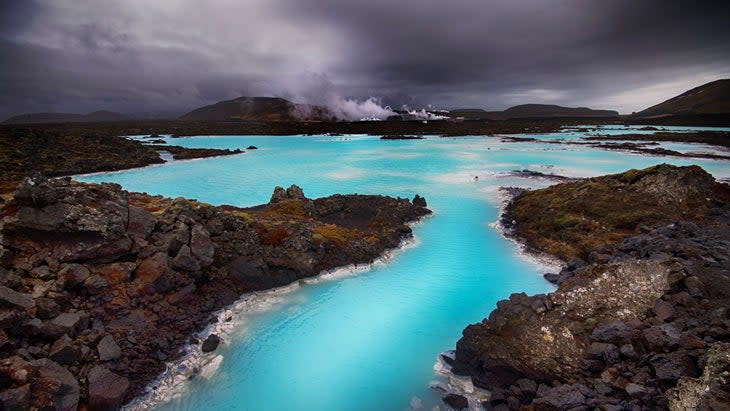Tourists Flee After Earthquakes Hit Iceland’s Famous Blue Lagoon. What Comes Next?
This article originally appeared on Outside
Dozens of guests fled the Blue Lagoon hotel and spa outside of Reykjavik, Iceland, late Wednesday night, after a "seismic swarm" of over 1,400 earthquakes shook this popular destination on the island nation. A local news outlet reported that taxis came in droves to pick up the terrified guests after the first 4.8 magnitude earthquake rocked the spa. Around 800 earthquakes of similar magnitude followed, with more shaking the earth through Friday afternoon.
Bjarni Stefansson, a local taxi driver, described a chaotic scene at the Blue Lagoon, with 20 or 30 taxis trying to access the driveway.
"There was a panic situation," Stefansson told The Associated Press. "People thought a volcanic eruption was about to happen."
The Icelandic news website Vikurfrettir reported that rocks and debris fell on the road that led to the hotel, but that more than 40 people were able to leave the resort by taxi cab. The Blue Lagoon is host to a popular geothermal hot spring in which both tourists and outdoor enthusiasts soak after trail runs and scenic bike rides around the volcanic landscape.
Hours after the Blue Lagoon staff decided to close the resort's doors on Thursday, November 9, the government declared a state of emergency, urging the town of Grindavik and its 3,300 residents to evacuate. The first earthquake and its aftershocks suggest that a volcanic eruption in the region is imminent.
"Iceland is no stranger to volcanic activity, and there have been three eruptions on the Reykjanes Peninsula in the last two years," the Blue Lagoon management said in a statement. "Icelandic authorities and local communities are well-prepared for such events, and Iceland has one of the world’s most effective volcanic preparedness measures. Iceland’s geoscientists possess vast experience in dealing with volcanic activities."

Roads are now closed in and out of the Reykjanes Peninsula, and Icelandic police urge travelers to respect the closures. "From geophysical models of the dike intrusion, it is estimated that the intrusion is propagating upwards slowly, with magma thought to be 800 m beneath the surface," the Icelandic search-and-rescue site SafeTravel.is stated. "The likelihood of a volcanic eruption is high and an eruption could be possible on a timescale of just days."
In Iceland in 2010, a major eruption of the Eyjafjallajokull volcano disrupted air traffic between the United States and Europe over an eight-day period. The volcano ejected 250 million cubic meters of volcanic ash, which resulted in more than 100,000 flights being canceled.
The Blue Lagoon resort will reassess the prospect of reopening this week and announce a decision on Thursday, November 16.
For exclusive access to all of our fitness, gear, adventure, and travel stories, plus discounts on trips, events, and gear, sign up for Outside+ today.

